HIT CHANNEL EXCLUSIVE INTERVIEW: November 2018. We had the honour to talk with a great musician: Johnny Echols. He is best known as the lead guitarist and founding member of psychedelic rock pioneers, Love. In 1967, Love released “Forever Changes”, one of the greatest albums of all time. Johnny has also played with Jimi Hendrix, Miles Davis, Little Richard and Billy Preston. He currently performs with Love Revisited. Read below the very interesting things he told us:
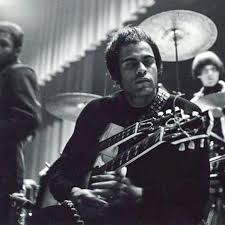 What are the current projects you are involved with?
What are the current projects you are involved with?
We are working on an album right now called “Gethsemane”, which is some of the music that would have been on “Forever Changes”, that never made it and now I am working on finishing it and we are coming along pretty good. We are in the studio. I will be doing some more studio work tomorrow and as I said, it’s coming along well. We are also preparing for a tour. We will be coming to Europe sometime in 2019, in the summer, in June I believe and so we are working out the details for that. We are pretty busy.
Why you weren’t satisfied with the sound of the first Love studio album (“Love” -1966)?
Because when we played live, there was a certain sound that we had, that was really a driving sound and it just didn’t sound as full or as professional on the tape, as it did when we played live. So, we weren’t happy with it. I was never happy with Bruce Botnick as an engineer, anyway. We just didn’t get along personally and now it was what it was. You have to respect your engineer. When you are working with someone like that, you have to have a mutual respect and none of us had any respect for him as an engineer or a person.
Had you realized that “7 and 7 Is” (from “Da Capo -1966) was ahead of its time?
Oh yes, we did. When we started recording “7 and 7 Is”, we were trying to go on a different direction, so we wanted to have a kind of “live controlled chaos”. So, when we recorded it, that was one of the problems we were having with Bruce Botnick in the studio because we wanted to play it really loud, as loud as we were playing it on stage and he was concerned about things bleeding into other microphones and we kept telling him: “It doesn’t matter if it bleeds into the other microphones. It is supposed to be just a chaotic kind of sound and it needs to bleed, it needs to have that sound in order for it to be the song that we are trying to create”. Anyway, we had a lot of difficulties and that’s why it took almost 100 takes in order for us to finish the song. It was because of problems with him.
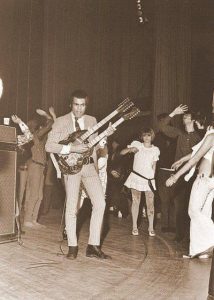 You played “Revelation” for many years before it was recorded, when its title was “John Lee Hooker”. Mick Jagger watched you playing it at the Brave New World and later the Rolling Stones recorded “Goin’ Home”. How did you feel about this?
You played “Revelation” for many years before it was recorded, when its title was “John Lee Hooker”. Mick Jagger watched you playing it at the Brave New World and later the Rolling Stones recorded “Goin’ Home”. How did you feel about this?
Actually, we were very happy about it, because they released their version before ours, I believe. When we went to the studio, we were supposed to bring some other people from Bido Lito’s and Brave New World with us. It was supposed to be a kind of a live, club atmosphere and the Musicians’ Union wouldn’t allow us to do that, because they would be clapping and they would be part of the recording, so they didn’t allow us to do that. We normally played that live on stage just about every night and because we played 3 or 4 sets a night, sometimes “John Lee Hooker” or “Revelation” would last the whole set, so everybody got to play really long, extended solos and it was kind of our signature. That’s how we got recognized and been noticed by other musicians and the fans, because they would come there and hear us play this one song for the whole set.
There is an interesting story behind the lyrics of “Stephanie Knows Who”. Can you share it with us?
Stephanie Buffington was a beautiful young girl and both Bryan (ed: MacLean –guitar) and Arthur (ed: Lee –vocals) were enamoured with and they both wanted to date her. So, they were having this little kind of tug of war with her and we went to the beach and she had this little mark of her side, because she was wearing a bikini. So, we asked: “What happened? Why do you have those scratch marks on your side?” and she said that when she was a little girl a tiger had scratched her. We were naïve, young boys, so we believed her and later on we found out that wasn’t what happened. What happened was she had been pregnant when she was a teenager and those were stretch marks. In the song Arthur says: “A tiger did you said he did”, he was referring to her saying that a tiger had scratched her, but as I said in reality that was just a result of a teenage pregnancy.
Are you proud that “Forever Changes” (1967) is considered one of the best albums of all time?
Oh, absolutely. It’s amazing that it has taken all these years for it to get the recognition that I thought our album deserved. We worked very-very hard on that and we went through blood, sweat and tears in order to create that album. So, we were kind of shocked initially when it didn’t just take off the way we expected, because we knew immediately we had something special. But it has been great later and we are now in the Grammy Hall of Fame and the Library of Congress, we have a permanent exhibit. We also have a permanent exhibit at the Smithsonian Institution’s Museum of African American History and Culture, so it has now been recognized. It’s just sad that Arthur and Bryan of course and Kenny (ed: Forssi –bass) are not now here to see all of the accolades that the recording finally received. Yeah, I’ve very-very proud of it.
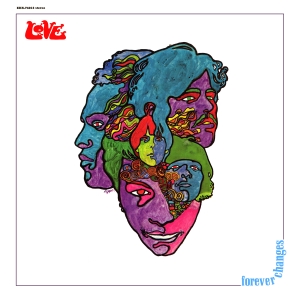 The way your recorded guitar on “A House Is Not a Motel” is very unique. What really happened?
The way your recorded guitar on “A House Is Not a Motel” is very unique. What really happened?
That was when we were in the studio. There was something wrong with the headphones. I played two guitar solos on “A House Is Not a Motel”. When I played the first solo, everything was cool. I could play it and I could hear the background music, so I laid down the track. But when was time to play the second solo over it, I couldn’t hear the first solo and they kept working on the headphones and tried to get it to work, but it didn’t. So, I had the choice either to go home and come back another day or just to play it. So, I decided just to play it. Arthur was in the booth, this is where the recording engineer is, and we could see him through the glass and he would be motioning and signalling me with his hands, when to play higher upon the neck and when to play lower on the neck. So basically, we worked it out that way. Apparently, it was one of first songs recorded where you couldn’t actually hear yourself playing.
Were you frustrated when Jac Holzman (boss of Elektra Records) brought in session musicians during the “Forever Changes” sessions?
We had initially been told that it was going to be a double album set and there would be enough stuff, so that Bryan and I, both could do a bunch of our songs. But when it came time for us to get to the studio, everything changed. We were told that we were only gonna do one album and that we would do the other part of it, later on. Bryan got really-really upset and he wouldn’t play all the songs the right way, they way he normally would play. He played with a lot of feeling and he refused to do that. So, when we were in the studio, it just didn’t sound right. It didn’t sound like Love anymore. Jac Holzman and Bruce Botnick thought that if they brought in session musicians and then they would just overdub our parts, later on they could finish the album. They brought in the guys from the Wrecking Crew and they played one song, which was “The Daily Planet” and it just didn’t sound like us at all. Even though they were playing in our rhythm, the things they added to, they didn’t sound like Love. They were sent home and we finished the album with the members of Love, who played on everything. But we were upset that they just didn’t let us work out our problems and all they tried was to just force that on us. It did work out very well. So, we sent them home.
How would you describe Arthur Lee as an artist?
Arthur Lee was a genius at writing poetry. He should have been a poet. He wasn’t very into being a musician. He didn’t want to take the time necessary to practicing to become a really good musician, but he was a fantastic singer and a wordsmith. He wrote wonderful-wonderful lyrics, but he trusted me, Bryan and Kenny to interpret the vocals, his melodies and his lyrics and put them to music, which is what we did. So, every Love song from the original group was written that way: Arthur would come in, he knew rudimentary chords on the guitar and he would start writing a song down and showing us how this went and how that went. Basically, the melody. We would add our own chords and Kenny would add the bass line and we would work the song out that way. Everything was a collaborative and collective effort and as I said, Arthur was just a genius at putting together words in such a really magical way and evoking images. He was a kind of a storyteller in a Bob Dylan thing. Arthur never receives the credit he deserves for being a world-class poet.
Do you like the Rush cover to “7 and 7 Is”?
I don’t think I’ve heard that. I‘ve heard a few different covers that they have done: Alice Cooper, The Ramones and a couple of others, but I’ve never heard the one you mentioned.
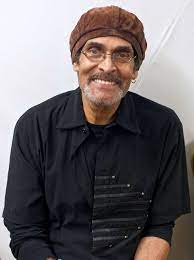 Love lived in a huge house called “The Castle”. What was it like to live there?
Love lived in a huge house called “The Castle”. What was it like to live there?
It was fantastic! We were living in this huge 80-room mansion, it was kind of run down a bit, but it had belonged to a silent film actress, Lillian Gish, and we only had to pay the taxes. So, we lived there, just paying the taxes and the upkeep. It cost us really much less than would have cost us if we have rented an apartment each. We had this huge place where we could have parties and all sorts of people would come there and hang out in the lower part of it. Other musicians would come and they would play, they just had jam sessions that lasted all night long, because the place was so big, that it really didn’t disturb the neighbours. It was fantastic living there. It was a party house. We were young boys, we were still teenagers. I was about 18-19 when we moved in and it was like living in Disneyland. Because I would just go downstairs and see a young lady, I would grab her by the hand as we went upstairs to my room. So, that’s how it went.
Why did it take so long for Love to reunite?
We tried several different times, but we were upset with the way “Forever Changes” went, the sessions went and all the interference we were getting from our record company and so we didn’t trust each other the way we had normally, when we were friends and saw each other every day. Everybody drifted apart and we went our own way. We tried several different times to put the group back together, but it just didn’t seem the same because now we got managers and other people involved in our relationship, that wasn’t that way when we initially played. We were five friends and we were growing up and playing together our music. Now, all of a sudden, it’s a business with lawyers, agents and managers involved, so it was really difficult. But when Arthur got out of prison, and with the last ones left, me and Michael Stuart (ed: drums), we just talked about and said if we are gonna ever do this, we have to do it now. So, we did.
Do you think Love should have been more popular?
Oh, absolutely. Because when we decided that we were going to bring The Doors in… Basically what we did was that we insisted Elektra sign The Doors and they didn’t like The Doors. Jac Holzman came several times to the Whisky to see them and he just didn’t get it. He really didn’t like them and we kept pushing him because we thought if Elektra sign The Doors, they would allow us to leave and sign with MCA who had offered us a fantastic sum of money and they were gonna promote our records right, so we would get more airplay and they would have sponsored tours and things which Elektra, couldn’t afford to do it at the time. It turned out that we were just with the wrong record company, at the wrong time and that’s why the group wasn’t nearly as successful initially as it should have been. Because we had a fantastic group, we could fill The Hollywood Bowl just by word of mouth, so there was no reason why we shouldn’t have gone to the next level, other than the fact that we didn’t have the proper promotion.
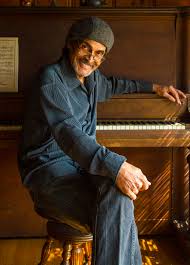 Why do you consider The Doors a soft rock band?
Why do you consider The Doors a soft rock band?
They didn’t have a bass player when they played on stage. Ray Manzarek used the organ keyboard and pedals and he would play the bass parts with either his left hand or the bass pedals. It was never really driving enough. A bass player in a live rock group is really driving and you can feel it in your bones, where you couldn’t do that with The Doors. They sounded more like a Las Vegas lounge act than a really hard rocking group. They had developed the sound with Ray playing those parts and so they just decided to keep it that way. The fans loved them more than our own group (laughs). So, they became super-super successful. They must have done something right.
Did you get on well with Jim Morrison?
Oh, yeah! We, Jim Morrison and I, were great friends. That’s why insisted on Elektra signing them, because we were friends for so long. It’s strange now, but David Crosby, Jim Morrison and I, used to hang together in all the cool places. They had fallen out, that I didn’t really understand what the problem was, but during the time The Doors, The Byrds and Love were popular in Hollywood, we were just great friends. I always got along with Jim, we went to the circus together or we’d go to parties. We would just go and hang out with each other. He was an interesting guy. Very-very intelligent man and funny, as long as he wasn’t drinking. Once he started drinking, then he would become a handful. But I really enjoyed Jim. I miss him.
When did you first meet Jimi Hendrix and what was your first impression of him?
I first met Jimi when I was playing at a place called The California Club in Los Angeles. Billy Preston and I, we were part of the house band and we would play behind people like B.B King or John Lee Hooker -who never would come there and perform- but we were part of the house band and played behind them. So, they did have to bring a bunch of musicians where they ‘d just give us the sheet music and we played the song. I was playing there with Billy and Jimi Hendrix, who was called Jimmy James at the time, came there to audition for with a job with The O’ Jays. He was playing with the Isley Brothers and The O’Jays needed a guitar player, so he was there to audition for them. So, that’s when I first met him. We played in the house band together for just a few months and I got to know him quite well and I liked Jimi personally, but at that time he was just kind of a so-so guitar player. He really didn’t stand out the way he later did and I always wondered what happened in that year or so from the time he was at The California Club playing as sort of a so-so journeyman guitar player to being this humongous super-talented person that he became. It was odd. I always wondered if he went to the Crossroads and worked out a deal with the Devil. But anyway, I was just joking. He was so much better than he initially was when I first met him.
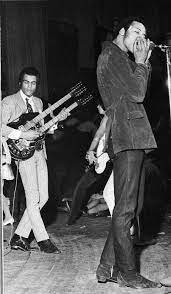 How did it happen to play with Miles Davis?
How did it happen to play with Miles Davis?
Miles Davis had been a friend of ours for years because when we played at Bido Lito’s, there was place called Shelly’s Manne-Hole, which was right across the street. So, whenever the jazz musicians would be on a break, they would be across the street because all these young girls would be there to see us. We had all these women and girls there and so all the musicians of course would come over and would hang out. I met Miles Davis then and when I moved to New York, I would often see him or Sonny Rollins or Charlie Mingus and other jazz musicians at the local jazz clubs. I started hanging out more and more there and Miles and I got to re-establish our friendship and we worked together. Basically, I was there with him when he was coming back from a hiatus from music, because he had been away from music for a quite long time. He was doing artwork and all that, so basically we just jammed together. It wasn’t me like playing live with him on stage. I never got that far away with him, because I had other things to do and he had a totally different sound. We did jam a lot and for quite a bit at his house or in different jams at clubs and stuff like that.
Did you jam at clubs together?
There was a place called The Bottom Line. We played there. Eddie Lang had a little place in New York, a kind of a basement. He had a music store there in a very nice place in the Village, Village Music. He had a basement and groups would come there and just jam together. As I said, we were not doing recordings or playing live in large venues like the Madison Square Garden or any of those. I didn’t play with Miles doing that. I was just basically helping him get back into music, because he had been out for so long.
Are you the first rock musician who used a double-neck guitar?
I think so. Some of Love songs especially on the first album, had 12-string guitar parts and so it was a pain to put one guitar down and pick up the 12-string as usually when you said you are tired and have started to get out of tune a little bit, because of the change from the bodywork and all of that. So, I wanted a guitar where I would just play one guitar the whole night, as I just plugged it in and switched necks, going from 12-string to the 6-string, rather than having to take another guitar, plug it in and re-tune it and all that. There was a guy, Semie Moseley who was from Mosrite Guitars, he put together a 12-string neck for me and the 6-string and I started playing that and later I found a guitar that had been made in the ‘50s, called the Stratosphere and it came in stock with the 12-string neck and the 6-string. I started playing one of those, but I don’t think any other rock player was using double-necks at that time, other than myself because I know some country players like Joe Maphis. He played a double-neck but it was a mandolin and the guitar, a 6-string, in the bottom end. I was, as far as I know, one of the first rock musicians to use a double-neck guitar.
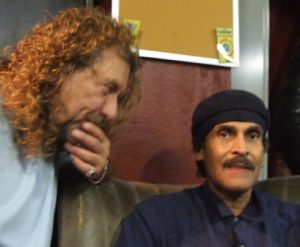 How important was the period you played with Little Richard to your later career?
How important was the period you played with Little Richard to your later career?
He helped me in the sense that he would give a really good advice about how to navigate the music industry, who to trust in and always to make sure that you have things in writing and that you own your own publishing company. We were probably one of the first groups –some of them did- that owned our own publishing, so that we were not belonging to someone else as far as our music was concerned. We owned the rights to our songs and I still do own the rights to Love records and that’s basically came from just conversations with Little Richard. So, I am always grateful to him for that, because I have earned quite a decent living and enables us whenever somebody records our songs or does a cover of it, we get paid rather than many people like The Chambers Brothers and others who just never got paid for any of their work. We did.
You met The Beatles in 1963 when you were in the UK with Little Richard and Jimi Hendrix. What memories do you have of them?
I remember that The Beatles just loved Little Richard, they were just fond of him and they followed him around like little puppies. They were just really enamoured with him. So, I remember it. I didn’t stay longer because there was a death in the family and I had to come back to Los Angeles, but just during the time that I hung out with them, they were funny guys and fairly good musicians and I went to see them play a few times. I never, at that time, expected them to be the phenomenon that they turned out to be. They were a decent group but a cover band. Basically, that’s what they did: They played covers of other people’s music like “Twist and Shout” or some of Little Richard’s songs.
When I got back to Los Angeles and I was playing with Billy Preston at a club, I think the Nightlife in California, and we got a letter over there from Brian Epstein (ed: The Beatles manager). He had sent us backstage passes to the Hollywood Bowl concert to come and see The Beatles. I was kind of confused because I had not realized that those guys that we saw in Germany and in England were the same guys that were now this huge phenomenon called The Beatles. When we got there and saw them, it was just mind-blowing the change that they’ve got. They went from being a fine band running after Little Richard and now they are stars in the own right. It was just amazing to see that: The huge crowd of people and all the screaming girls and everything. That was really-really something.
You’ve said that Jimi Hendrix and Sly Stone handled the racial problems different than you and Arthur Lee. Can you explain it to us?
They were all quite older, 4-5 years older. It’s quite a difference when you are that young. So, they were older than us and Arthur and me, were basically still kids. They would be able to handle the racial problems and work things out of it. We were just getting mad and said: “No!” when asked if we would play in front of a segregated audience, where black people would be upstairs and white people down below. We would say: “No, we are not gonna do that!” whereas Jimi Hendrix and Sly Stone, they would work it out, they would talk and have conversations and kind of work something out that was beneficial to themselves and the club, where we would just say: “Hell no! We are not gonna do it” and would just walk out.
Many times we were offered chances to play in the South like in Georgia, Florida and Texas. We did play in Texas but there were places in this country that we would be offered gigs and we would just turn it down, because we didn’t want to put up with racial segregation and animus that was going on between black people and white people at the time, when black people tried to vote and a civil rights struggle was happening and the Vietnam war and all that stuff. There was a lot of trouble that was happening in the ‘60s and you needed to be mature in order to navigate that and as I said, Arthur and I, were still kids basically.
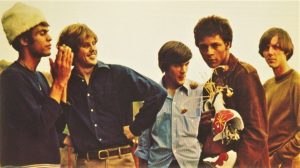 When you were 16, James Brown’s manager asked you to join his band! Could you imagine yourself playing with the “Godfather of Soul”?
When you were 16, James Brown’s manager asked you to join his band! Could you imagine yourself playing with the “Godfather of Soul”?
I did, at the time! I thought that was fantastic because I was still a kid. I was still in high school and all of a sudden, there is James Brown asking me to play with him. Yeah, I was really honoured and flattered by that, but obviously it didn’t work out because I was still in school and they needed someone that was older. He heard a song on a juke box, that I had played and written called “Soul Food”. Arthur and I, both were playing on it and James heard it and he loved the guitar playing on that. So, he sent his manager to find me. The manager came over and was talking to my father and Arthur and I walked in. So, the manager asked if I would be interested in playing with The James Brown Revue and of course I said: “Yeah!” but he didn’t know that I was only 16 years old. So, when he found it out, he said: “Well, we have to wait until later”. But yeah, I was super-super flattered by that.
Would you like to send a message to the European fans?
Hi, this is Johnny Echols from the group LOVE, with a shout-out to all of our friends in the UK and Europe. I would like to thank you from the bottom of my heart, for all the support you’ve given us lo these many years. But to quote George Harrison “All things must pass”. I’m here to announce that in the summer of 2019, LOVE will be playing what may be our final series of shows in the UK and Europe. Over the next few months, as details are finalized, we will inform you as to the Times, Dates, and Places. The group will be performing “Forever Changes” in its entirety, as well as favorites from “Da Capo” and the first Love album. So come join us, we would love to see all of our old friends, as well as our new friends, for this may very well be our last dance on your side of the pond… Thank you!
A huge “THANK YOU” to Mr. Johnny Echols for his time.
Official Love Revisited website: http://www.love-revisited.com
Official Love Revisited Facebook page: https://www.facebook.com/LOVErevisitedband

